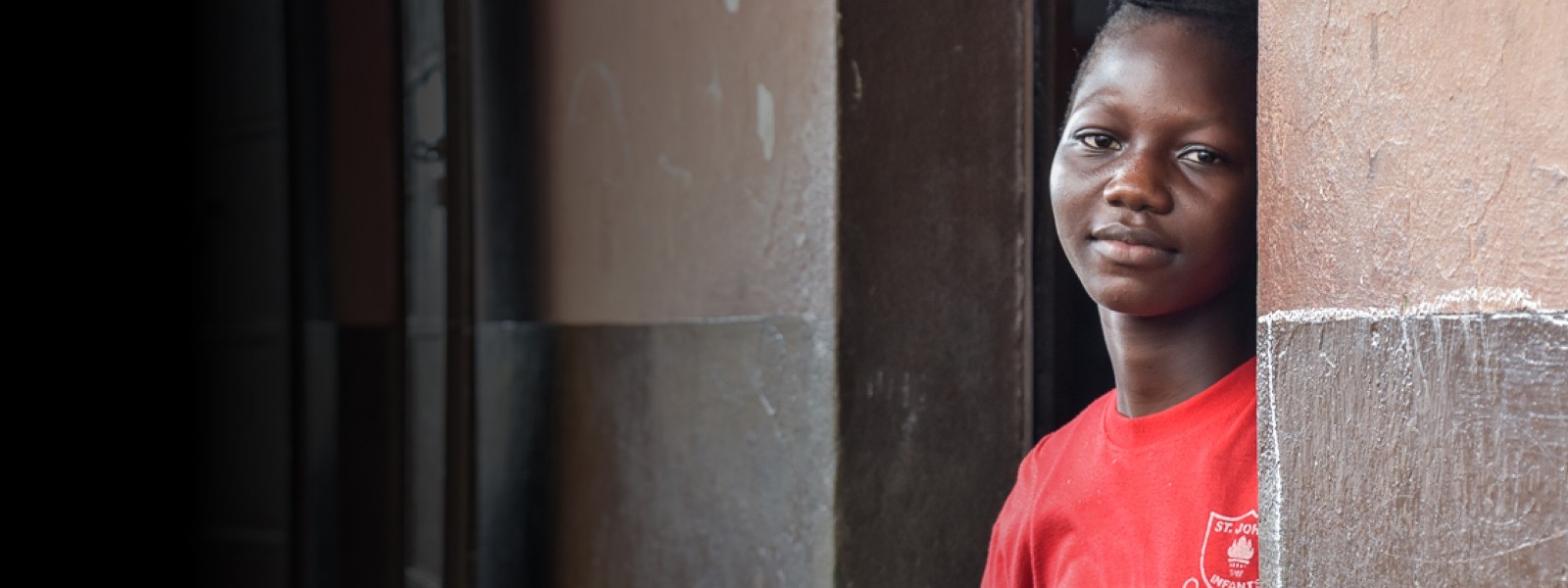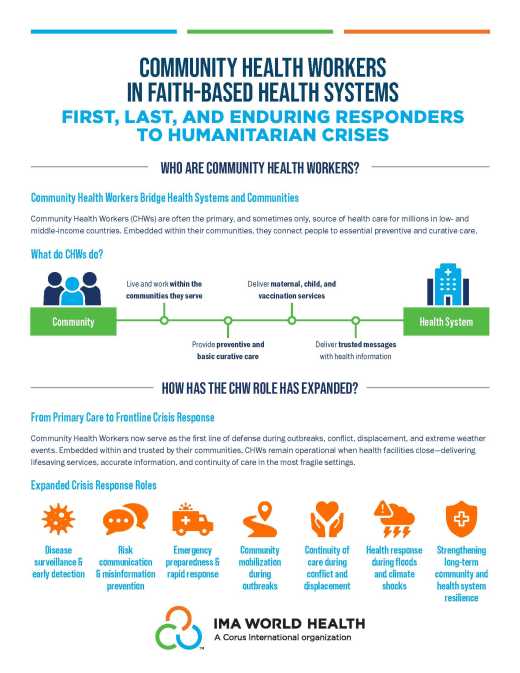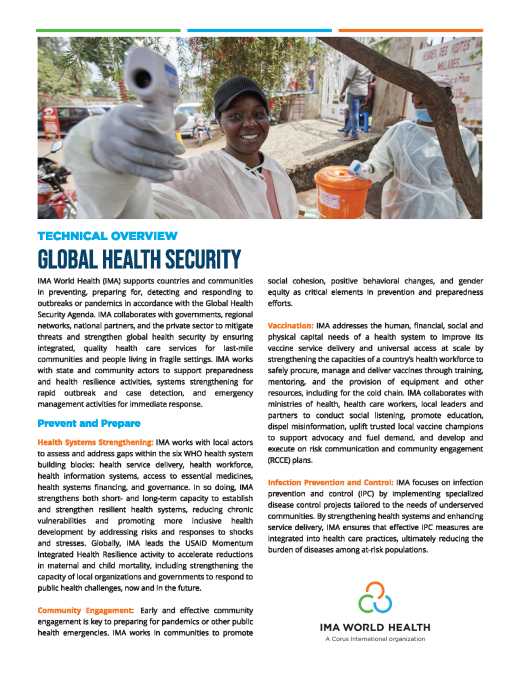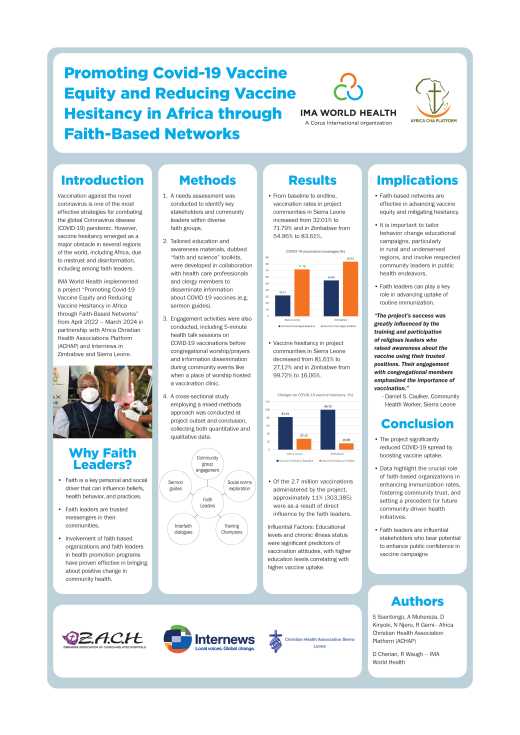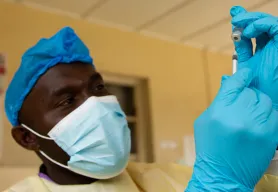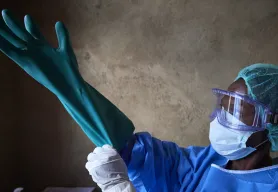Sierra Leone’s maternal, infant and children under five mortality rates are amongst the highest in the world. More than a quarter of children under five are affected by stunting. Despite the country’s efforts to improve health in recent years, communicable diseases and other preventable causes continue to result in devastating health outcomes. In the past decade, Sierra Leone’s health system faced two enormous crises, in the form of the world’s largest Ebola outbreak in West Africa in 2014-2016, and the ongoing COVID-19 pandemic. The risk for future epidemics and other public health crises remains high. Ensuring equitable, affordable health care for all citizens requires a holistic, systems-strengthening approach that is grounded in local partnerships and national networks.
IMA World Health strengthens health systems to ensure sustainability by engaging with existing local networks, including government systems, faith-based networks and community groups. In West Africa, IMA World Health works alongside our peer organizations in the Corus International family to address the interconnected challenges of poverty, education, health care access and climate change. Since the mid-1970s, our Corus partner Lutheran World Relief has worked to increase smallholder farmers’ resilience to climate change while supporting long-term economic development throughout the region. In Sierra Leone specifically, Corus organization CGA Technologies has worked with the Ministry of Health and Sanitation since 2011 to improve the quality of healthcare delivery by strengthening the management of healthcare workers. CGA Technologies also works with the Ministry of Basic and Senior Secondary Education and the Teaching Service Commission to improve education resource management and build an inclusive, equitable education system aligned to learner needs. By integrating resources and expertise throughout the Corus family, IMA World Health is uniquely positioned to continue to improve national health outcomes by strengthening integration of health services, scaling up evidence-based interventions and improving maternal, newborn, child and adolescent health.
Project Highlights
Inequities in health services and access to vaccines constitute a threat to global health security despite the development of effective COVID-19 vaccines to curb the global pandemic. Critical to delivering and promoting COVID-19 vaccines and evidence-based communication are faith-based health facilities and their national coordinating bodies, Christian Health Associations (CHAs), which are estimated to provide between 30 to 70 percent of health care in many Sub-Saharan African countries. IMA World Health has a long-standing relationship with several CHAs and was a founding member of their network organization, the Africa Christian Health Associations Platform (ACHAP). Through the Osprey Foundation-funded Promoting COVID-19 Vaccine Equity through Faith-Based Networks in Africa project, IMA World Health and ACHAP partner to strengthen the capacity of targeted CHAs, with a particular focus on Sierra Leone and Zimbabwe, to advance COVID-19 vaccine demand and delivery through their expansive networks which reach overlooked, last-mile rural communities. The project works with the Christian Health Association of Sierra Leone (CHASL) and the Zimbabwe Association of Church-Related Hospitals (ZACH) to close gaps in service delivery by microplanning alongside ministries of health, engaging faith leaders as champions for vaccine uptake, and developing evidence-based media and communications strategies with technical support from project partner Internews. The project also strengthens ACHAP and CHA leverage and recognition with national governments and international partners, such as the African Union.
Resilient health supply chains are the cornerstones of efficient health care systems as well as a driving force in improving equity, quality and access to essential services and medical products. Furthering IMA World Health’s commitment to strengthening health systems, the Smart Leveraged Church Supply Chain (Smart LCSC) project will address gaps identified in the supply chain of health commodities in the church health systems of Sierra Leone and Nigeria. By partnering with the Ecumenical Pharmaceutical Network (EPN), the project will strengthen Christian Drug Supply Organizations (DSOs) to ensure that a consistent supply of affordable and quality-assured medical products reaches communities across Sub-Saharan Africa. To improve preparedness for future shocks, EPN and IMA World Health will implement smart supply chain best practices and strengthen data management while developing the technical skills of staff working across health supply chains to build stronger and more sustainable systems.
The Corus Effect
Founded in 1960, IMA World Health is part of Corus International, an ensemble of long-serving, global leaders in international development and humanitarian assistance committed to ending poverty and building healthy communities across Asia, Latin America and the Caribbean, the Middle East, and Africa.
In addition to IMA World Health, the Corus family includes global aid and development organization Lutheran World Relief, U.K.-based technology for development company CGA Technologies, impact investing firm Ground Up Investing, and direct trade company Farmers Market Brands.
Alongside communities and local partners in fragile settings, our dedicated experts across our organizations integrate disciplines, approaches and resources to overcome global health challenges, develop productive and stable economies, improve resilience in the face of climate change, and respond to natural disasters and humanitarian crises. We invest in solutions that are innovative, scalable, holistic and move the needle towards transformational change.


